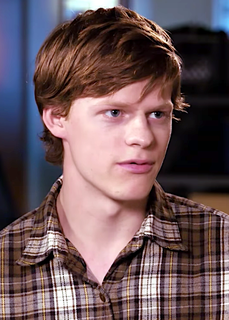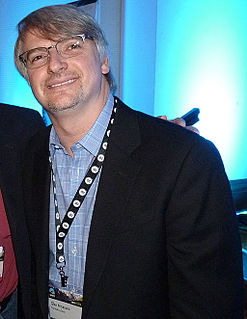A Quote by Karan Bajaj
A lot of the book [The Yoga of Max's Discontent] is about karma and rebirth. Things like that are very attuned to my life as an Indian, but when I approach it from a perspective of a Westerner, then I have a skeptical, yet kind of novice view on it. I think that choice really liberated the story to be its own story. A lot of the conclusions that Max reaches on his own are not mine at all. So, I think that allowed the story to take on its own momentum, to have its own propulsive force.
Related Quotes
The best time to tell your story is when you have to tell your story. When it's not really a choice. But then, when you get that first, messy, complicated version down, you have to read it over and be very tough on yourself and ask, 'Well what's the story here?' If you're lucky enough to have someone you trust looking over your shoulder, he or she can help you if [you] lack perspective on your own story.
Each of us is our own story, but none of us is only our own story. The arc of my own personal story is inexplicably and intrinsically linked to the story of my parents and the story of my neighbor and the story of the kid that I met one time. All of us are linked in ways that we don't always see. We are never simply ourselves.
When you do these things, you sort of take the journey. The journey is all about how I can interweave the Oscar Wilde story, the story of Salome, the play itself and what it is, what it contains, and my journey as an actor, as a director, as a filmmaker, as a person struggling with whatever I'm struggling with - my own celebrity, my own life. This is semi-autobiographical in terms of my commitment to this kind of thing.
I was interested in the ways we can write biography. When you're first starting to write about your own life it feels so shapeless because you don't know how to make your own story cohesive. How do I pluck a story out of the entirety of what it means to be alive. It occurred to me recently that when you're telling a story about your own life, rather than taking a chunk, you're kinda like lifting a thread from a loom.
The actors come in and they make characters their own and so Patrick and I have never been the kind to think that our script is the bible. We want to make sure that the story is told, that you stick to the story but if you have to make changes to the character then that's fine. A lot of times there are some funny one-liners, funny things that happen that are out of the ordinary. I like it.
For better or worse, I seem to gravitate toward writing about something or someone else, then have my own self shove its way into that story. It seems insanely narcissistic. But I also think there's a particular effect that comes from using my autobiography in service to another story, as opposed to being the subject. I'm much more comfortable working in that mode. And I do think I have a persona or mood that I keep coming back to: self-conscious, self-critical, unsure. I write a lot about bodies, particularly male ones, usually as a point of emphasis for my insecurities about my own.
The comic book, and I've said it before, is a treasure trove. It's a grab bag. We certainly have characters and story lines that we really want to do - but to get there in a TV series, you have to take your time. Sometimes you can't get right to it. They're two different mediums. So we make it our own and really own the material. I like to think of it as an alternate universe.
































